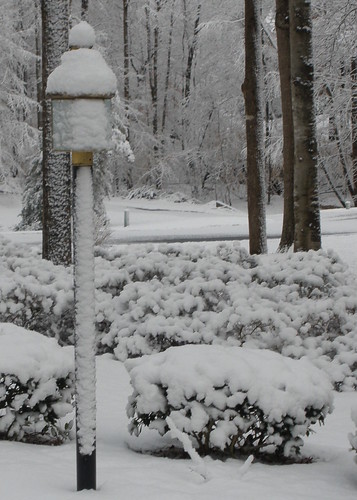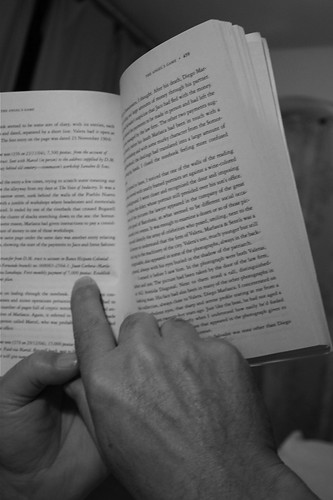Many authors like to read the work of other authors, and it's easy to get
inspired by the greats. They say that imitation is the sincerest form of flattery, so isn't it only natural that authors emulate the authors they like? Just know that, when you do, you should consider the source. Some of the most popular books aren't necessarily well-written, and you definitely don't want to take a page from them and re-produce the bad grammar.
Some books explode into pop culture unexpectedly, becoming wildly popular and read by large audiences. But it cannot be taken for granted that such books are well-written, or shining examples of good grammar. In fact, sometimes the exact opposite is true. There are literally hundreds of books that sold well but still had horrible mistakes within the pages, but for the purposes of this post we're only going to talk about two mega bestsellers. One's a self-published book, and one is not.
That's right: I'm not afraid. Read The Hunger Games carefully enough, and you'll find excess commas, poor sentence structure and more grammar errors than you can shake a bow and arrow at. Arguably, author Suzanne Collins may have had a reason for making all these mistakes -- but we'll get to that in a minute.
First, I've got a prove my case for all the fans out there. Here are two examples of comma overload, where
semicolons should have been added instead:
In some districts, in which winning the reaping is such a great honor, people are eager to risk their lives, the volunteering is complicated.
Obviously Haymitch isn’t much, but Effie trinket is right about one thing, once we’re in the arena he’s all we’ve got.
Bad grammar is evident in many sentences. They are simply poorly structured, with modifiers in the wrong place, and end up making very little sense:
But I retrieved the small bow and arrows he’d made me from a hollow tree.
My bow is a rarity, crafted by my father along with a few others that I keep well hidden in the woods.
The first error suggests that the bow and arrows were made from a hollow tree; the author means to suggest that they are hidden in the tree. The second error suggests that the heroine keeps her father, along with some other people, hidden in the woods. That changes the story quite a bit.
I couldn’t go home. Because at home was my mother with her dead eyes and my little sister, with her hollow cheeks and cracked lips.
This is just a silly pluralization error. Because "my mother" and "my little sister" are both "at home," the correct verb is the plural were, not was.
The Hunger Games is crazy popular, and well-loved enough to spark a full-length feature film. It's also not self-published. This fiction juggernaut has all the power of a team of copy editors and the clout of a major publishing company behind it. It's possible that Collins intended to write the book in the tone and style of her protagonist, as the book is told from the first-person perspective. It's possible that these errors are actually brilliant, cleverly implemented as part of a careful writing technique. But at the end of the book, it's still wrong. And wrong is wrong, no matter what justification you use.
But some very popular self-published books are no better, mind you.
The self-published book that was read 'round the world, Fifty Shades of Grey, is also incredibly popular. It's also destined to become a movie, and plenty of article writers and book bloggers have already done the casting back to front. But you'd better not read it if you're looking for an example of great writing in the indie genre...because you won't find it.
Notice how I used the ellipsis up there? I like using them; I've even blogged about it. But I definitely don't like them as much as E. L. James.
I suck harder and harder … Hmm … My inner goddess is doing the merengue with some salsa moves.
He gently strokes my hair … Boy … I Survived. That wasn’t so bad. I’m more stoic than I thought. My inner goddess is prostrate … well, at least she’s quiet.
The word
overkill fairly leaps to mind.
Fifty Shades of Grey has also taken flak for being
over-written; the term "purple prose" crops up
a lot.
So...What's Wrong With Readers?
So why is it that bad writing, poor grammar and weird punctuation are celebrated, rather than reviled? It's not that today's readers make poor choices, or that the nature of writing itself is changing. Many, many readers acknowledge that the books they love are riddled with mistakes, but they consciously overlook them because they love the plot and the characters of the book.
It seems to clearly point to the fact that readers care most about the content of the book itself: the story. But that's no reason to write just any old way, or ignore the basic rules of English. It's wonderful to write a popular book. It's even better to write a book that's popular and critically-acclaimed. You don't want your work to come with a disclaimer (sure, the punctuation is crap, but...) and you don't want your reputation to be that you're strong in plot but shite at the mechanics of writing. You can do both; it just takes a little extra time and care.
In the end, it's worth it.

























